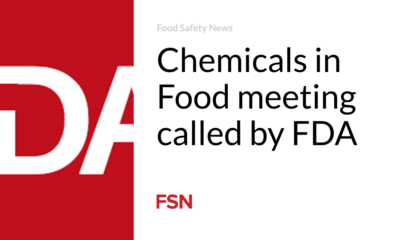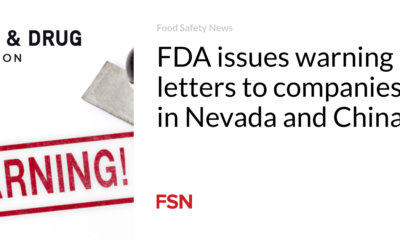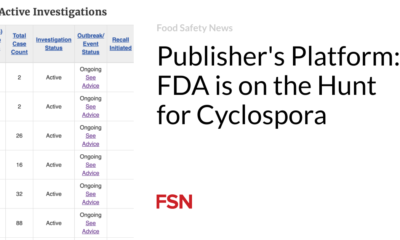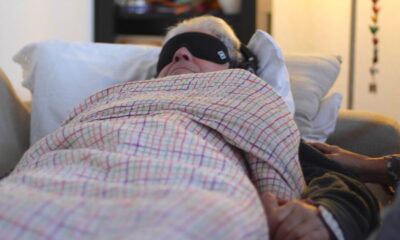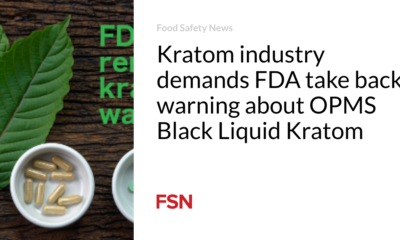Health
FDA approves EpiPen alternative, a nasal spray for anaphylaxis
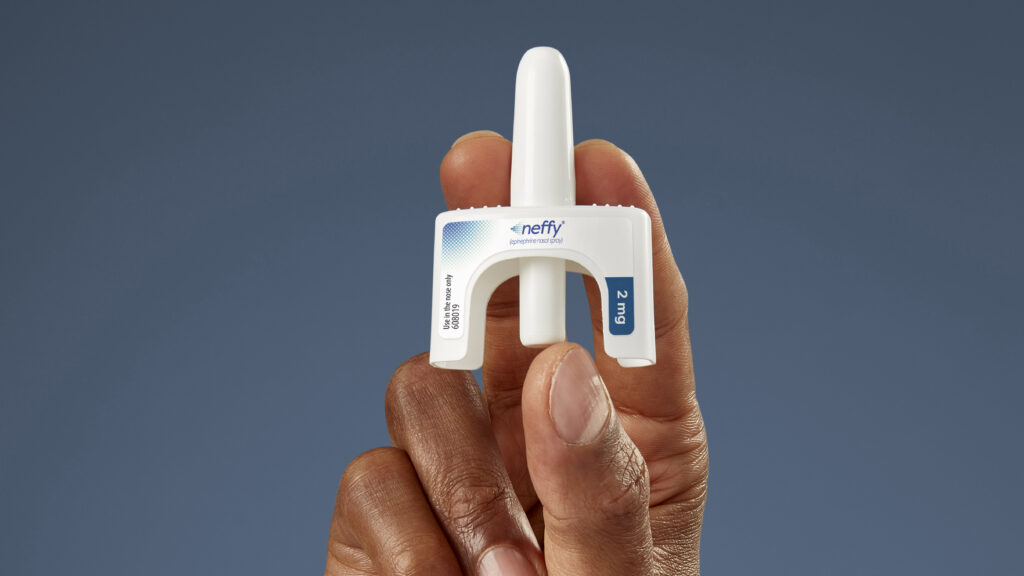
OOn Friday, the Food and Drug Administration approved the first needle-free treatment for adults and children with severe allergic reactions. The approval introduces a competitor to ARS Pharma for older epinephrine products, such as the EpiPen.
Neffy, as the product is called, is a nasal spray that delivers the same drug used to treat anaphylaxis. It is ARS’s flagship product. Friday’s approval comes after the FDA halted approval of Neffy in September and asked the drugmaker for additional data.
At the time, the company was asked to conduct a repeat-dose study of Neffy to show that it worked as well as available epinephrine products. (Viatris, the maker of the EpiPen, has also filed a petition asking for more data, Endpoints reported.) Much of the ARS data submitted last year came from people who were healthy or had only mild allergies (no anaphylaxis), there was limited safety data, no formal clinical trial of efficacy, and results varied between studies.
The 2-milligram dose of Neffy was approved for anaphylaxis in adults and children weighing more than 66 pounds. One spray goes into one nostril and the second can be used as a backup if the first fails to curb anaphylaxis. Experts recommend seeking medical care during an episode of anaphylaxis, even if someone has been taking epinephrine.
The evaluation process for epinephrine is based on surrogate measures of efficacy, such as how well Neffy raises a person’s blood pressure (a necessary step to calm an allergic reaction). Epinephrine has been widely used since before the FDA existed, so the approval process differs from that of newer medications.
Neffy’s approval was based on four studies involving 175 healthy adults without anaphylaxis. According to a new release from the FDA, the concentrations of epinephrine in their blood after using Neffy were similar to those after using an auto-injector pen.
An epinephrine nasal spray has been difficult to develop because the drug is not well absorbed through the nose, said ARS CEO Richard Lowenthal, a 25-year veteran of drug development who started his career as a new drug reviewer at the FDA.
ARS presents Neffy as a smaller and easier-to-administer rival to auto-injectors, which for decades have been the only rapid treatment option for people with severe allergies. Epinephrine, which is the same as adrenaline, has been used to treat anaphylaxis for a century. However, existing treatments face delivery, cost and design issues that Neffy hopes to solve.
Lowenthal told STAT in September that a pair of Neffy would cost no more than $199, even for people who are uninsured or have high-deductible health insurance. For most people with commercial insurance, ARS plans to use coupons to reduce copays to $25 per two-pack.
He also said he doesn’t expect to encounter the same supply problems that have plagued other epinephrine products. Since 2017, the EpiPen has been in shortages and other auto-injectors have been pulled from the market due to quality control issues. Lowenthal said the complicated design of the pens is a problem. Epinephrine itself is available, and Neffy will use a simple syringe device, the same device used for Narcan overdose medications and several other products on the market. Neffy’s nasal spray containers are about the size of a tea bag and deliver a single dose into the nose with a one-handed pump.
Research by ARS shows that children from the age of 12 can use Neffy themselves (the drug manufacturer chose the name to be child-friendly). “It doesn’t matter if you dispense it upside down, right side up, in a corner – it doesn’t matter. It fires in all directions exactly the same way,” Lowenthal said. And ARS has designed a clip-on carrying case reminiscent of an AirPods case to keep the doses inside.
Neffy can also be stored at a temperature of up to 122 degrees Fahrenheit for up to three months, meaning users don’t have to worry about the drug spoiling if they leave it in a hot car for an afternoon, Lowenthal said. That pushes temperature stability beyond auto-injectors, he said.
Reported side effects of Neffy include: throat irritation, headache, nasal discomfort, fatigue, tremor, runny or itchy nose, sneezing, abdominal pain, gum pain, numbness in the mouth, nasal congestion, dizziness, nausea, and vomiting. People with nasal polyps or a history of nasal surgery may not absorb Neffy well, and people with allergic reactions to sulfite should talk to a doctor before using the spray.
Lack of access to epinephrine — because of cost or supply, or insurance coverage — can put people with severe allergic reactions in risky situations, experts say. Although deaths from anaphylaxis are rare, delaying treatment means the allergic reaction may worsen and require hospitalization.
Access problems increase health disparities. Data already shows that there are significant differences in the prevalence of food allergies by socioeconomic status. And black, Hispanic and Asian children are more likely to have severe allergic reactions, multi-food allergies and related emergency visits, Ruchi Gupta, a pediatrician and founding director of the Center for Food Allergy & Asthma Research at Northwestern University’s Feinberg School of Medicine and Lurie Children’s Hospital of Chicago found in her research. (The top nine allergens are peanuts, tree nuts, crustaceans, finned fish, milk, eggs, soy, wheat and sesame.)
ARS will then try to expand the patient pool to children with a lower weight. The drugmaker also told STAT that it was conducting studies to see if Neffy can work for people with chronic hives or persistent asthma.
STAT’s coverage of chronic health conditions is supported by a grant from Bloomberg Philanthropies. Us financial supporters are not involved in decisions about our journalism.

